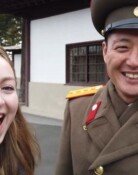`N. Korea stayed mum on Yushin regime to help opposition`
`N. Korea stayed mum on Yushin regime to help opposition`
Posted October. 16, 2012 00:25,
A thawing mood for inter-Korean dialogue that began with the improvement of Sino-U.S. ties in 1971 peaked through the 1972 inter-Korean joint statement in 1972.
The then Park Chung-hee administration in Seoul, however, declared the Yushin (revitalizing reform) regime that instituted martial law, revocation of the Constitution, dismissal of the National Assembly, and the introduction of an indirect presidential election at 7 p.m. on Oct. 17, 1972.
Back then, North Korea and the U.S. both remained surprisingly silent. In the afternoon of the day of the declaration, Pyongyang released criticism as a formality through its (North) Korean Central News Agency, but the central committee of the ruling Workers Party, which was the Norths top governing body, held a heated internal debate through an editorial in the partys official newspaper Rodong Shinmun over whether to officially condemn Yushin.
According to diplomatic documents on North Korea from the former East Germany released Monday by the Woodrow Wilson Institute, the Institute for Far Eastern Studies and the University of North Korean Studies at Kyungnam University, North Korean Vice Foreign Minister Ri Nam Sok told diplomats from Eastern European nations in Pyongyang on Nov. 8, 1972, (The central committee) changed its original plan to issue an editorial condemning the Souths declaration of emergency martial law.
If the North criticizes the Souths emergency measure, the opposition party will be suppressed even more and this will deprive it of the foundation and room to stage a campaign for a South Korean revolution. The dialogue channel, which is barely open, will be completely shut...Anti-government organizations in the South will lose all chances to resume activities. The South has no choice but to open its doors towards the North for now, but is seeking the grounds to withdraw the principle of agreement on the (1972) joint statement and shut its doors. We should not give the South any cause for action.
In the end, the North said it would continue a peace offensive toward the South started in June 1971 even after the declaration of the Yushin regime. North Korean leader Kim Il Sung said, The purpose of our offensive toward South Korea is to unify through communization by boosting (the South`s) internal capacity for revolution through dialogue.
According to diplomatic documents from East Germany, North Korean Vice Foreign Minister Ri Jin Mok also told ambassadors from Eastern European nations on Nov. 28, 1972 that We will have the South leave its doors open in order to counter the Park Chung-hee governments double strategy by democratizing the South Korean society, and continue to pressure the South to keep its doors open.
Seoul also sought dialogue with Pyongyang and continued to hold six rounds of talks through the inter-Korean adjustment committee through June 1973. Shin Jong-dae, a professor at the University of North Korean Studies in Seoul who led the discovery of the documents, said, The South wanted inter-Korean dialogue to seek the extension of the Park administration and earned time to engage in a regime competition with Pyongyang. The North did so to achieve the other purpose of dismantling the Park government.
At the time, the U.S. maintained a non-interference principle by remaining silent on the Yushin regime in consideration of security on the Korean Peninsula. A report prepared Oct. 26, 1972 by the CIA, State Department and Defense Department warned that if Washington officially objected to Yushin, Pyongyang could exploit objections to the Park administration in and out of South Korea.
The report predicted side effects of the Yushin regime, saying, "It is questionable how successful an attempt to reverse the political clock in Korean society, which is relatively more advanced and dynamic, will prove to be, adding, If the military and officials face growing discontent (on top of diplomatic problems), it will generate a synergistic effect that will have a negative effect on domestic (South Korean) politics as well.
kyle@donga.com baek@donga.com







